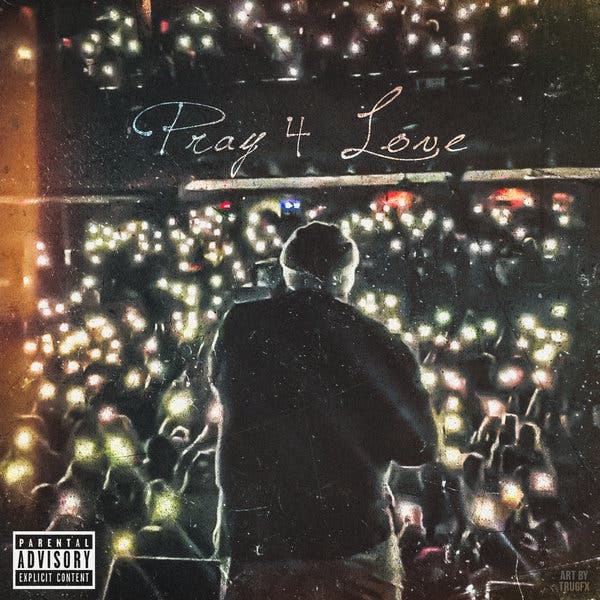Throughout “Pray 4 Love,” Wave, 21 and originally from St. Petersburg, Fla., paints a picture of devastation and disappointment. On “Thug Life” and “The Greatest,” he bemoans the limited options available to him and the people he grew up with. On songs like “5% Tints,” he bounds back and forth between scratchy rapping and sweet-exhale singing. Often we hear him singing and rapping all at once, overlaying one track of his vocals atop another, as if he’s healing himself in real time.

While Wave works with a wide range of producers, they’ve collectively honed a signature sound that suits Wave perfectly — most songs begin with lush and contemplative piano, a plangent and melancholy guitar, or both. The tempos are slow, allowing him to linger over his pain.
“Pray 4 Love” is Wave’s second major label album in five months. “Ghetto Gospel,” from last November, was a little rougher around the edges, with songs that felt more harried. (It was executive produced by Kevin Gates, an artist he’s a clear inheritor of.) His instinct for bloodletting was already formed, though, like on “Soldier Life,” with its chilling opening line: “Didn’t ask to be alive, but I’m living.”
Thematically, Wave’s music has little to do with contemporary R&B — his inputs are squarely in the hip-hop tradition. Back before R&B was granted full access to hip-hop’s subject matter, this kind of hybrid was less common, especially in the 1990s, but it was still deeply potent. Think Nate Dogg’s soothing crooning on Los Angeles gangster rap classics, bold taunts delivered with doo-wop chill. The texture (though not the content) of the debut albums from Jodeci and Mary J. Blige. DRS’s seminal “Gangsta Lean.” R. Kelly’s “I Wish” (and the “To the Homies That We Lost” remix). And don’t forget the brief (late-2000s) starburst that was Tim Vocals.
During that same stretch of time, when hip-hop was looking to expand its emotional authority and range, the genre found myriad ways to import soul music, whether via a sample, or a collaboration with a singer, or sometimes just an off-key warble. Take Master P’s affectingly clunky “I Miss My Homies,” dating to an era when seemingly every hip-hop album had one token song about the shattered underbelly beneath the tough or glamorous exterior. Or Bone Thugs-N-Harmony’s feather-light and ocean-deep “Tha Crossroads.” Or the work of Tupac Shakur — who Wave has spoken admiringly of — one of the most emotionally astute rappers ever, and someone who injected social-justice soul ethics directly into his rapping.
 EU News Digest Latest News & Updates
EU News Digest Latest News & Updates



